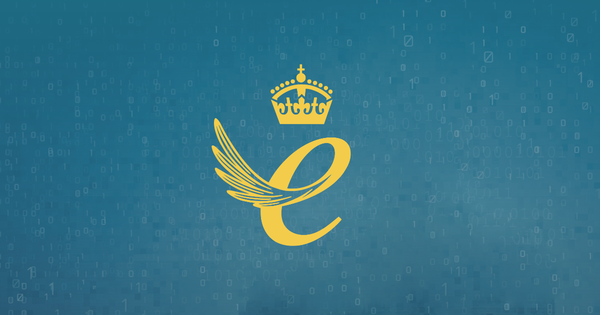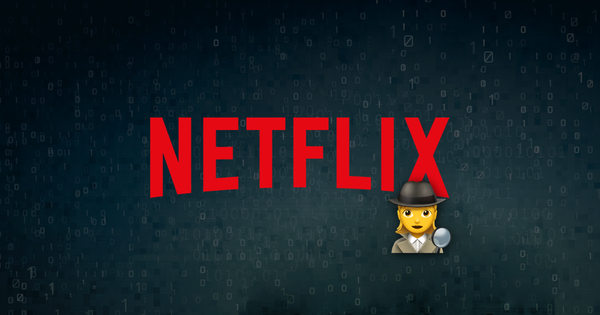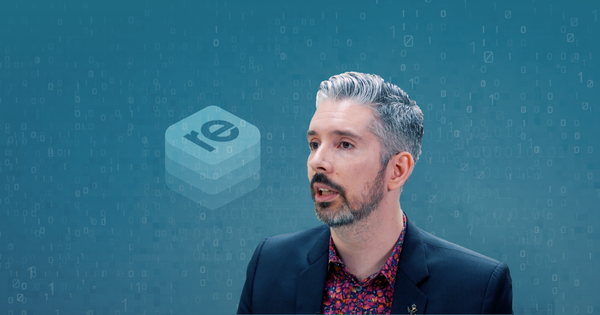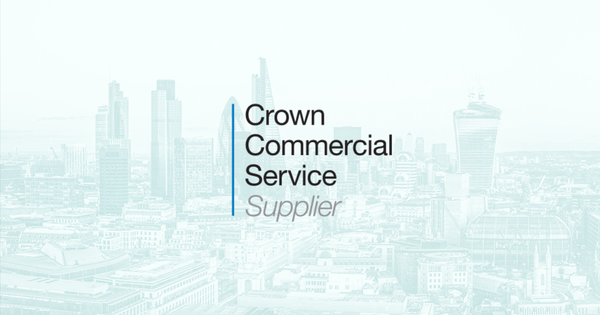Interview: The growing importance of app data

I was interviewed recently by WebCertain TV on the importance of app data, and we talked about scaling up and the genesis of Reincubate.
The transcript is as follows:
Gemma
Welcome back to webcertain.tv. I’m Gemma Houghton. Today I’m joined by Aidan Fitzpatrick, founder of Reincubate, an app data startup. He is here to talk to us about app data and importance of it, as well as the challenges and exciting opportunities of being a startup. Hi, Aidan! Thanks for being here.
Aidan
Hi, Gemma! Thanks for having me.
What Reincubate does
Gemma
Firstly, you mentioned that your company is providing software to help recover app data and gain insights from apps. What exactly is app data and why is it useful?
Aidan
Sure, it sounds broad, doesn’t it? App data is information that’s created by apps. There are many apps out there. I think that the type that people are most familiar with are on mobile devices, on your Android, on your Apple phone.
There also is a new generation of apps that are coming out with Internet of Things devices. There are apps that we’ll see in autonomous cars and vehicles. There are apps that we’ll see around augmented and virtual reality. All of these different bits of technology are creating data that is really quite valuable and has a number of different purposes.
What we help to do is we help companies and individuals tap into that data so that they can create value around it. That may be a consumer, that may be a quite a simple transaction where for instance you’ve lost a photograph, you’ve lost a contact, a phone number, a message.
Or it may be the where we're working with an organisation – we help them in a number of different areas. It might be for instance market research – helping them to understand more about how people use the web, or work with adverts. That may be e-discovery – helping organisations to tap into data that flows through the company. And there is a number of other spaces. The law enforcement and forensics obviously come up a fair amount.
Gemma
Does this work that people can access data from their own app? Or is this information that can be pulled… data points that can be pulled from other apps? How does that work?
Aidan
Generally, we’re helping organisations get information from a set of apps which they haven’t necessarily built themselves. The information almost always belongs to the consumer. Organisations, when they do this, they have to be transparent. They have to work with the consumer’s approval. But it's generally where the consumers will opt-in to a program that allows an organisation to deliver functionality to them.
Gemma
So there’s a lot of opportunity I guess to get really good insights from the way people behave, what people are interested in, trends that are happening – all of that kind of information that you otherwise wouldn’t have access to.
Aidan
There are all sorts of use cases. We work a fair amount in the consent-based parental monitory industry, where we power a number of US startups to build technology products like that. They might have for instance an application that enables a parent to understand whether or not their child is at risk. They may then use our technology and layer over technology to find evidence of cyber bullying or sexting or something like that. That is one of many use cases that we see.
Gemma
So it is very broad and it isn’t just about understanding what makes somebody buy a product from a website. It’s beyond that.
Aidan
Absolutely. We are the cogs that power other companies layering this technology on top.
The genesis of Reincubate
Gemma
What made you decide to go into this space in the first place? Did you see a big gap in the market for this kind of approach?
Aidan
I’ve been building technology throughout my career. I’ve been involved in a number of different startups, both in starting them and, more recently, in investing in them. This was actually originally an accidental business in terms of its genesis.
Gemma
The best ones often are.
Aidan
Yeah. I was a very early iPhone adopter. When iOS 2 came out a long time ago, back in 2008, the upgrade process lost all my data. I lost all of my contacts, I lost my notes. I had some information on the device that I really wanted.
That weekend I stalked the flat up with a lot of tea, a lot of sweets and I wrote code. I was an engineer early in my career. Eventually, I managed to get my data back. I put the script online so that people could download it. Within a short space of time, I was deluged by people wanting support with this. I’d come home from work – I had another job at that time, a different startup business – and I would answer 20 or 30 e-mails every night.
This went on. After the second week, I said, “Look. I can’t keep doing this. How can I discourage people from contacting me?”
Gemma
Yeah, “This isn’t actually my job.”
Aidan
Absolutely. I had a very serious role at the time. I thought what I’d do is I’d put a price on this. That would discourage people reaching out. So I said, “If you wire me $25 with PayPal, I’ll build you your own version of software which will work for you.” I thought this was the end of my problems, they would go quiet.
Unfortunately, it got worse. The short version is we did close to million dollars in our first 18 months. I had a substantial problem on my hands, which is a lot of demand that we were able to satisfy. It went from there. We started off in the consumer space, helping individuals. A lot of it was around phones being lost, broken, stolen.
Gemma
Dropped down in the toilet – the usual...
Aidan
No end of that. And then more recently, we turned to enterprise, looking at how we could help them.
Gemma
Quite an interesting story that I think a lot of people would always assume that to come up with something like this there is a lot of development, that the idea has to brew for many years. Actually, it turns out that often the most simple things are what people are looking for answers for, and that’s the way to do it.
From that initial starting point, once you realised this is a business and there’s a demand for this, how did you then go from it being something that people just contacting you, doing yourself to becoming an actual business and marketing it, I guess, and reaching out to these bigger organisations?
Aidan
One of the things we’ve tended to do is we’ve always been quite an inbound organisation. We’ve very rarely done active outbound advertising. One of our strengths is we’ve done very well with natural search. Because we’ve built the first product in the market it was difficult for us to increase the pace, at which people were interested. But as people naturally became interested, we were there, we owned the term, we owned the name. People came to us, and we were able to satisfy them.
I think as other players entered the space afterwards, they had to develop terms around what we had, or they had to acquire traffic. But we’ve always been quite fortunate in it by virtue being early. We had a first mover advantage. We had a good reputational advantage.
A number of quite interesting organisations used our software right from the start, because it was the only software that did what it did. For instance, we had the US Department of Justice, GCHQ, a number of other companies and organisations like that, who used that software, because at the time, if you had an iPhone, and you wanted to understand what was on it...
Gemma
That was the only way to do it.
Aidan
...you needed some technology to decode it.
Gemma
So it again comes back to the concept that if you’ve got something that there is a demand for, that there is a real need, if you actually serve a genuine need and if you can solve a problem, then you are very much on the way to being successful.
Aidan
Of course. And more recently, as we’ve moved into enterprise, we have undertaken a discovery process. We’ve gone out on the market, we’ve talked to people in different sectors and different industries to understand how they see this data, what value they could look to capture from it or create from it.
We’ve singled out different sectors. Let’s talk to compliance people, let’s talk to fleet management people, let’s talk to e-discovery. That was a fascinating process for us. But we’re still of course, as I’ve said, quite broad – I think in future we’ll narrow down into a couple of sectors and build a more focused product in those areas.
Gemma
Which again is probably the way that many businesses need to start – start broad and see where the interest comes from, see where you best place to provide support and have the right information available. That helps to determine the direction of your business I guess, without you having to decide that?
Aidan
I think so, yes. At the moment, the enterprise product is an API which is as I've said quite broad. I look to Twilio's example – they provide and API for telephony and messaging. They are quite happily the cogs behind other people building a number of other great services. Maybe that’s us. That’s quite an exciting prospect for us.
Scale-up experience and learning
Gemma
You’ve mentioned before your background and different roles that you had, and I believe one was working at Wiggle, helping develop that platform which many people now know and know to be a leader in its field, I guess. What did your learning gain from your experience there in growing up to such a level that has helped you now in this new venture?
Aidan
I suppose it gave me a lot of experience in what real high-growth looks like. Wiggle was a fantastic business. It still is a fantastic business. It continues to grow apace.
The experience I had was just as we started its international expansion, it was English only at the time. We rolled out to five languages in I believe 2009. And much as we were growing stronger it really exploded at that point – from the tech perspective.
I was the CTO. I had a team of about 40 engineers of different types. We had high-quality problems. I think when your organisation grows so significantly every year or every six months, things break. So I got very used to that. Process breaks – people process, technical process, technology.
It was a very helpful grounding in what it’s actually like to have a startup. As I said with this business, we went to our first million pretty quickly, we’ve continued to scale. It’s fascinating. When we come to see that we put in place process, we say, “Okay, this process is going to work at this size”. I know from prior experience that it’s not going to work at that point. However, that later solution isn’t right for a startup.
Gemma
Yeah, you have to evolve this as the business evolves and change things as you go. You can’t put something in place to start with and expect that to last forever.
Aidan
Absolutely.
Gemma
What would be your absolutely fundamental top piece of advice for anybody who is embarking on a startup or working in a startup? What is the really important message or lesson that you have learned?
Aidan
I think it’s served me very well to understand what customers want and to talk to customers to understand that demand. Because I think if one has a good handle on what people need, it’s quite easy to solve it. The harder thing is to find what people want. Staying true to customers and understanding their needs and how one consults them is certainly very valuable.
Gemma
So start with the customer, not the product.
Aidan
Yes. As the business has grown and we’ve become slightly more substantial, something I find very useful is having a network of peers. I got involved in a not-for-profit learning group called the Entrepreneurs' Organization, where I get to share experience and benefit from the shared experience of a number of other entrepreneurs and businesses that are ranging in different sizes.
I found that the processes that we have as part of that organisation are fantastic. Because it’s very difficult I think starting a business. There are all the different challenges, particularly as it grows. It can be difficult to explain and to relate some of the problems and difficulties one has. You can talk to your girlfriend, you can talk to your family, you can talk to your friends. But I think people are quite keen to advise. And that advice can often be unhelpful.
Gemma
So actually talking to people who’ve walked the walk and had these experiences can be really useful.
Aidan
Absolutely.
Gemma
It was very interesting to learn about your story, Aidan. Thanks for talking to us.
Aidan
Thank you, Gemma. Cheers!





